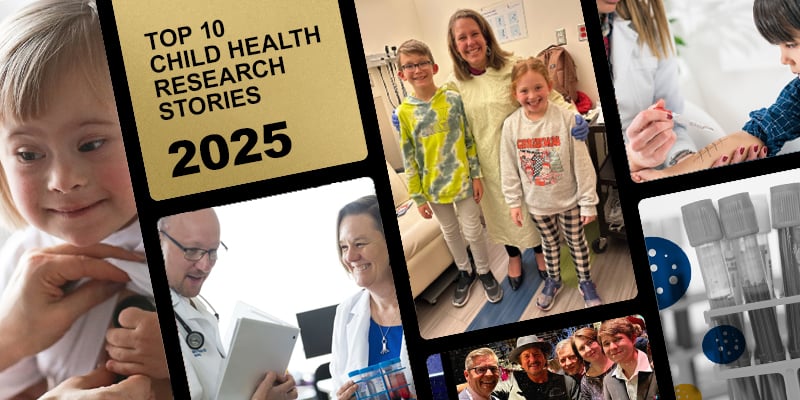Join the Department of Pediatrics for "Tribute to the Legacy of Michael Hambidge, MD, ScD," during pediatrics grand rounds on Friday, February 2, from 12:30–1:30 p.m. in Mt. Oxford, second floor conference center in Children's Hospital Colorado. Erick Boy, MD, PhD, chief nutritionist, HarvestPlus Nutrition, International Food Policy and Research Institute, will present "Biofortification – Reaching Millions of Rural Farming Households with Micronutrient-Rich Staple Crops Sustainably," with a reception to follow at 1:30 p.m. in the lobby.
 Dr. Hambidge (1932–2023) was a professor and emeritus professor of pediatrics at the University of Colorado School of Medicine for decades. He received his medical degree (MB B.Chir.) from the University of Cambridge and Westminster Medical School at London University in 1959. After residency at the Hospital for Sick Children at Great Ormond Street in London (1965), he moved his family to Denver in 1966 where he was a pediatric research fellow for two years at University of Colorado School of Medicine. He joined the Department of Pediatrics faculty in 1968, becoming professor in 1978 and professor emeritus in 1998. His honorary degrees include: Fellow of the Royal College of Physicians of Edinburgh (1982), Fellow of the Royal College of Pathologists England (1992), and an ScD degree from the University of Cambridge in 1988.
Dr. Hambidge (1932–2023) was a professor and emeritus professor of pediatrics at the University of Colorado School of Medicine for decades. He received his medical degree (MB B.Chir.) from the University of Cambridge and Westminster Medical School at London University in 1959. After residency at the Hospital for Sick Children at Great Ormond Street in London (1965), he moved his family to Denver in 1966 where he was a pediatric research fellow for two years at University of Colorado School of Medicine. He joined the Department of Pediatrics faculty in 1968, becoming professor in 1978 and professor emeritus in 1998. His honorary degrees include: Fellow of the Royal College of Physicians of Edinburgh (1982), Fellow of the Royal College of Pathologists England (1992), and an ScD degree from the University of Cambridge in 1988.
Dr. Hambidge had two distinct phases to his long career. Prior to the 1990s, his focus was on human nutrition – specifically the role that zinc and other trace elements played in human health. In the early 1970s, he published results of a study in Denver that was the first to identify zinc deficiency in young children in the U.S. This landmark article remains one of the most cited articles in pediatrics. His work over the next three decades documented not only the existence of relatively widespread growth-limiting zinc deficiency in vulnerable populations, but also the fundamental drivers of human zinc requirements. He founded the Center for Human Nutrition at the University of Colorado in 1988; established the first Colorado NIH-funded Clinical Nutrition Research Unit; directed the Pediatric Clinical Research Center for decades; and established the Section of Nutrition in the Department of Pediatrics.
During the 1990s, his focus increasingly shifted to global nutrition, especially maternal and early childhood nutrition in low income countries. With funding (which he had into his late 80s) from the NIH Global Network, the Bill & Melinda Gates Foundation and others, Dr. Hambidge and his team undertook RCTs and other studies designed to test and improve maternal and infant nutrition in countries such as Guatemala, Ethiopia, Malawi, China, Kenya, the Democratic Republic of the Congo, India and Pakistan. Core to his vision was sustainability and training of local investigators to carry on the research work independently.
Dr. Hambidge published more than 400 articles in his career and sustained substantial grant funding the entire time. His numerous awards included: the Borden Award in Nutrition, American Institute of Nutrition,1979; the Nutrition Award, American Academy of Pediatrics, 1987; the Sewall Award for Exceptional Leadership and Vision, University of Colorado, 2010; and the Kellogg Award for International Nutrition Research, American Society of Nutrition, 2011. Most of all, he left a legacy of excellence and perseverance in the field of human nutrition, and an enduring inspiration to multiple mentees throughout the United States and abroad.

